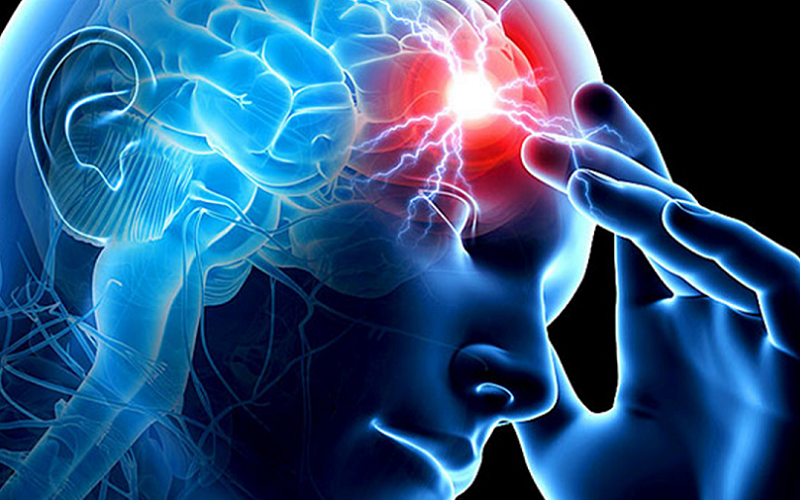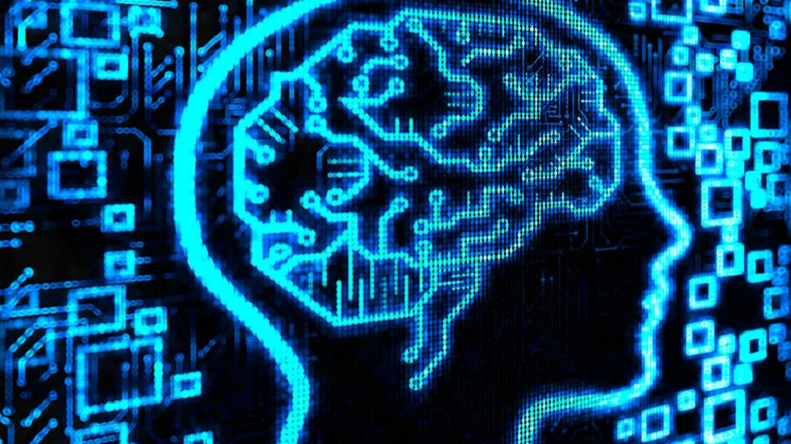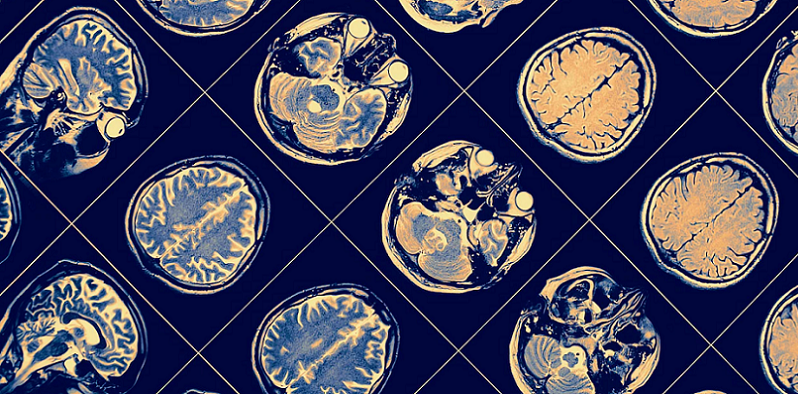
Typically associated with physical development, growth hormone’s influence extends far beyond just physical growth. Growth hormone (GH) has lesser-known roles of growth hormone in cognitive health. Here we examine the intriguing world of GH’s impact on the brain, exploring its presence in brain tissues and its significant role in brain development and neurogenesis. Growth hormone affects crucial cognitive functions like memory, learning, attention, and problem-solving.
Contents
The Biological Role of Growth Hormone (GH)
To fully appreciate the significance of growth hormone (GH) in relation to cognitive function, it’s essential to first understand its fundamental biological role. GH is not just a contributor to physical stature; it is a vital component of a complex physiological network that influences various aspects of health and development.
Explanation of Growth Hormone (GH)
Before delving into the specifics, it’s essential to understand what growth hormone is. GH is a peptide hormone secreted by the anterior pituitary gland, a small but significant organ located at the base of the brain. It plays a pivotal role in growth, cell repair, and metabolism. GH not only stimulates physical growth in children and adolescents but also helps to maintain tissues and organs throughout life. Its significance in the body’s developmental process is well-documented, but there is much more to this hormone than meets the eye.
GH in Physical Development
Growth hormone, primarily known for its role in physical development, is a key player in promoting height and muscle growth. In children and adolescents, GH stimulates the growth of bone and cartilage. This hormone is not only crucial during the early years of life but also continues to play a vital role in maintaining muscle mass, bone density, and the health of body tissues in adults. The direct actions of GH include stimulating the growth of all tissues in the body that are capable of growing, including bones and muscles.
Beyond Physical Growth: GH’s Other Roles
However, GH’s influence extends beyond just fostering physical growth. It has a significant role in regulating metabolism, which includes processes like muscle and bone growth, sugar and fat metabolism, and possibly heart function. GH influences these processes by stimulating the production of IGF-1 (Insulin-like Growth Factor 1), a hormone that has effects similar to insulin and plays a role in muscle and bone growth [1].
The Endocrine System and GH Secretion
The secretion of GH is a fine-tuned process regulated by the endocrine system, particularly the hypothalamus and pituitary gland. The hypothalamus releases growth hormone-releasing hormone (GHRH), which stimulates the pituitary gland to release GH into the bloodstream.
This release is not constant; it occurs in pulses, with the highest levels secreted during sleep. Factors such as exercise, stress, and low blood sugar levels can also influence GH secretion. The delicate balance of GH in the body is crucial, as both deficiencies and excesses can lead to health issues.

Growth Hormone and the Brain: An Overview
Having established the fundamental biological role of growth hormone (GH), it’s now crucial to turn our attention to its relationship with the brain. This connection is less commonly discussed but is vital in understanding the full scope of GH’s functions, particularly in the context of cognitive health.
GH Receptors in the Brain
Growth hormone exerts its influence on the brain through specific receptors located throughout the central nervous system. These GH receptors are found in various regions, including the hippocampus, cerebral cortex, and pituitary gland. Their presence in these critical areas suggests that growth hormone plays a direct role in brain function. The activation of these receptors by GH can lead to a cascade of cellular events that contribute to brain health and development.
GH’s Influence on Brain Development
One of the most significant roles of GH in the brain is its contribution to brain development. Research has shown that GH is involved in the growth and maturation of neurons, the brain’s fundamental units. It also influences the formation of synapses, the junctions through which neurons communicate. This synaptic development is crucial for learning, memory, and overall cognitive functioning. Moreover, GH has been implicated in myelination, the process of forming a protective sheath around nerve fibers, which is essential for the efficient transmission of nerve impulses [2].
Impact of GH on Neurogenesis
Neurogenesis, the process of generating new neurons, is another critical area where GH plays a role. Studies have suggested that GH can promote neurogenesis, particularly in the hippocampus, a region of the brain associated with memory and learning. This regenerative capacity is especially important as it indicates that growth hormone may help in repairing and renewing brain tissue, which could have implications for treating brain injuries or degenerative diseases.
Growth Hormone’s Impact on Cognitive Functions
Building on the understanding of growth hormone’s (GH) role in the brain, we now examine how GH specifically impacts cognitive functions. The brain’s capacity for memory, learning, attention, and problem-solving is integral to our daily lives, and GH plays a pivotal role in these cognitive domains.
Growth Hormone and Memory and Learning
Memory and learning are fundamental cognitive functions profoundly affected by GH. GH stimulates the growth and development of neurons and enhances synaptic plasticity, which is crucial for learning new information and forming memories. Studies have shown that individuals with GH deficiencies often exhibit impairments in memory and learning, which can be ameliorated through GH therapy. This suggests a direct link between growth hormone levels and the brain’s ability to store and process information.
GH and Attention and Concentration
Attention and concentration are other cognitive domains where GH exerts its influence. The ability to focus and maintain attention is essential for effective learning and daily functioning. GH’s impact on brain regions like the prefrontal cortex, which is involved in attention and executive functions, highlights its role in these cognitive processes. Research indicates that optimal GH levels are associated with better concentration and focus, whereas growth hormone deficiencies can lead to attentional deficits [3].
Growth Hormone and Problem Solving and Cognitive Flexibility
GH also plays a role in higher-order cognitive functions, such as problem-solving and cognitive flexibility. These functions are crucial for adapting to new situations, making decisions, and thinking creatively. The influence of GH on the overall health of neurons and synaptic connections supports these complex cognitive processes. Enhanced neurogenesis and synaptic plasticity, promoted by GH, are vital for the brain’s ability to reorganize and adapt, which are key elements in problem-solving and cognitive flexibility.
The exploration of GH’s impact on cognitive functions reveals its crucial role in various aspects of brain health. From enhancing memory and learning to improving attention and problem-solving skills, GH proves to be more than just a hormone for physical growth. Its involvement in these cognitive processes not only underscores the hormone’s importance but also opens avenues for potential therapeutic interventions in cognitive disorders.

Clinical Insights: Growth Hormone Deficiency and Cognitive Impairments
The relationship between growth hormone (GH) and cognitive functions becomes particularly evident when examining cases of GH deficiency. Clinical insights into GH deficiency shed light on its critical role in maintaining cognitive health and the potential consequences when this balance is disrupted.
Studies on GH Deficiency in Adults and Children
GH deficiency can occur both in children and adults, and its effects on cognition have been the subject of numerous studies. In children, GH deficiency is typically associated with stunted growth, but research has also highlighted cognitive impacts, including difficulties in memory, attention, and learning. In adults, GH deficiency often results from pituitary tumors or treatment for these tumors. Cognitive impairments in adults with growth hormone deficiency include reduced processing speed, memory challenges, and decreased executive functioning. These studies underscore the importance of GH not just in physical development but also in cognitive health [4].
Cognitive Impairments Linked to Low GH Levels
The link between low GH levels and cognitive impairments is becoming increasingly clear. Symptoms such as decreased motivation, mood swings, and difficulties in concentration have been observed in individuals with GH deficiency. Moreover, these cognitive impairments can have significant impacts on quality of life, affecting both personal and professional aspects. The breadth of cognitive issues associated with growth hormone deficiency further emphasizes the hormone’s broad impact on brain function.
Case Studies and Patient Observations Involving GH and Cognition
Case studies and patient observations provide valuable insights into the real-world effects of GH deficiency on cognition. These cases often reveal that growth hormone replacement therapy can lead to improvements in cognitive functions, suggesting a direct link between GH levels and cognitive health. However, the response to therapy can vary, and ongoing research is essential to understand better the most effective treatment approaches for cognitive impairments associated with GH deficiency.
Therapeutic Applications of Growth Hormone
The understanding of growth hormone’s (GH) role in cognitive functions opens the door to exploring its therapeutic applications. While GH is traditionally used to treat physical growth deficiencies, its potential in addressing cognitive impairments has become an area of growing interest in the medical community.
GH Therapy in GH Deficiency
The most direct application of GH therapy is in the treatment of GH deficiency. In children, GH therapy is well-established for promoting growth and development. For adults with GH deficiency, often caused by pituitary disorders, GH therapy can improve physical symptoms such as muscle weakness and fatigue. Beyond these physical benefits, there’s increasing evidence that GH therapy can also address cognitive deficits associated with growth hormone deficiency. Patients undergoing growth hormone therapy have reported improvements in memory, concentration, and overall cognitive function [5].
Potential Cognitive Benefits of GH Therapy
The potential cognitive benefits of GH therapy extend beyond treating deficiencies. Research is exploring the use of GH therapy in various neurological and cognitive disorders. Studies suggest that GH can have neuroprotective effects, potentially benefiting conditions like traumatic brain injury and neurodegenerative diseases. The hormone’s role in promoting neurogenesis and synaptic plasticity makes it a promising candidate for therapies aimed at enhancing cognitive functions in various patient populations.
Current Research and Clinical Trials Involving GH
Current research and clinical trials are crucial in understanding the full potential of GH therapy in cognitive health. These studies aim to delineate the effective dosage, treatment duration, and target populations for growth hormone therapy. Ongoing research is also exploring the long-term effects of GH treatment on cognitive functions and its safety profile. This expanding body of research is not only shedding light on GH’s therapeutic potential but also paving the way for new treatment paradigms in cognitive health.
References
[1] Growth hormone and cognitive function
[2] Growth Hormone Improves Cognitive Function
[3] Growth hormone and memory
[4] Growing knowledge: How growth hormone improves learning
[5] Treatment with Growth Hormone (GH) Increased the Metabolic Activity of the Brain in an Elder Patient

